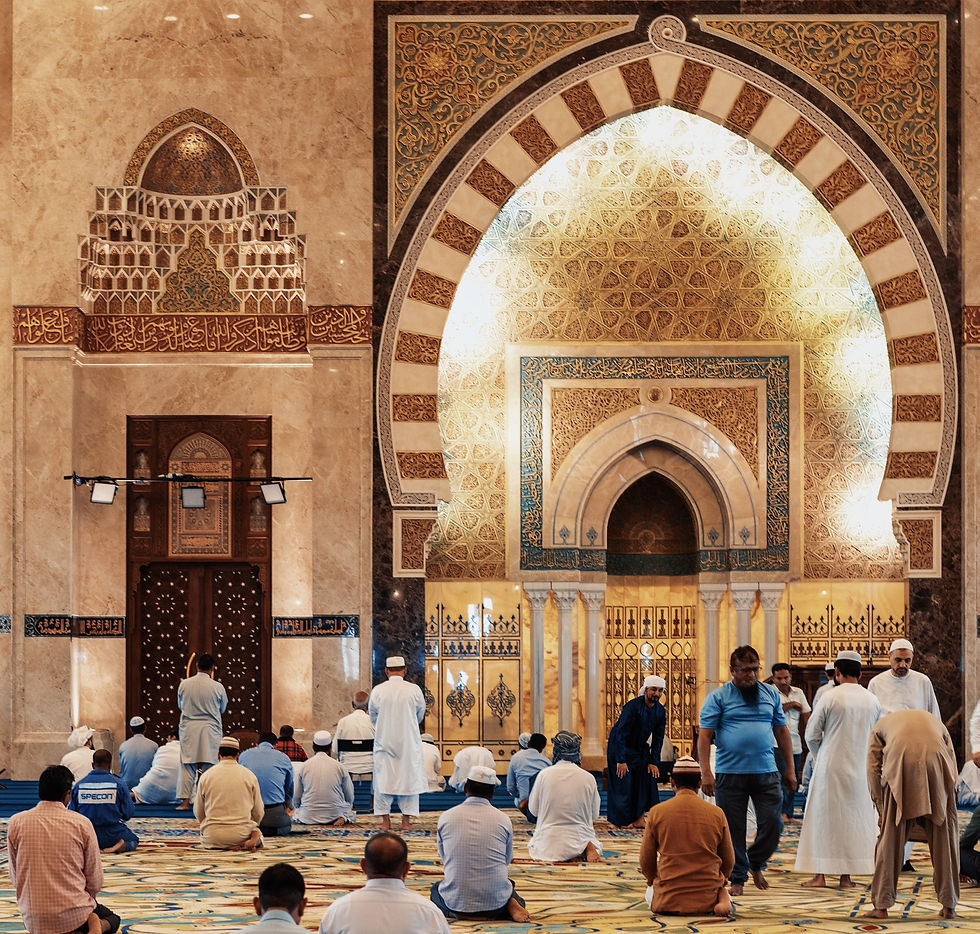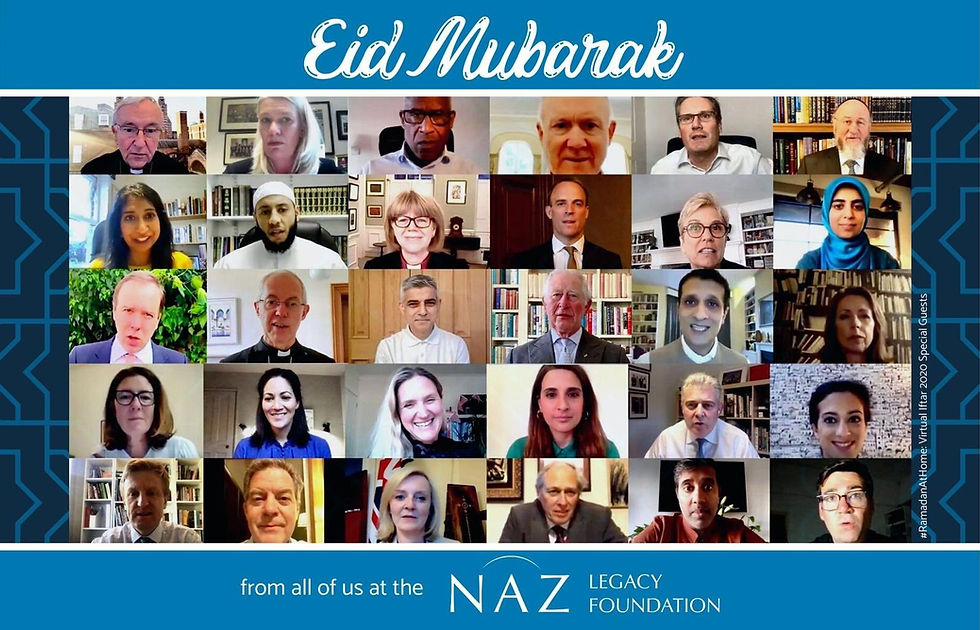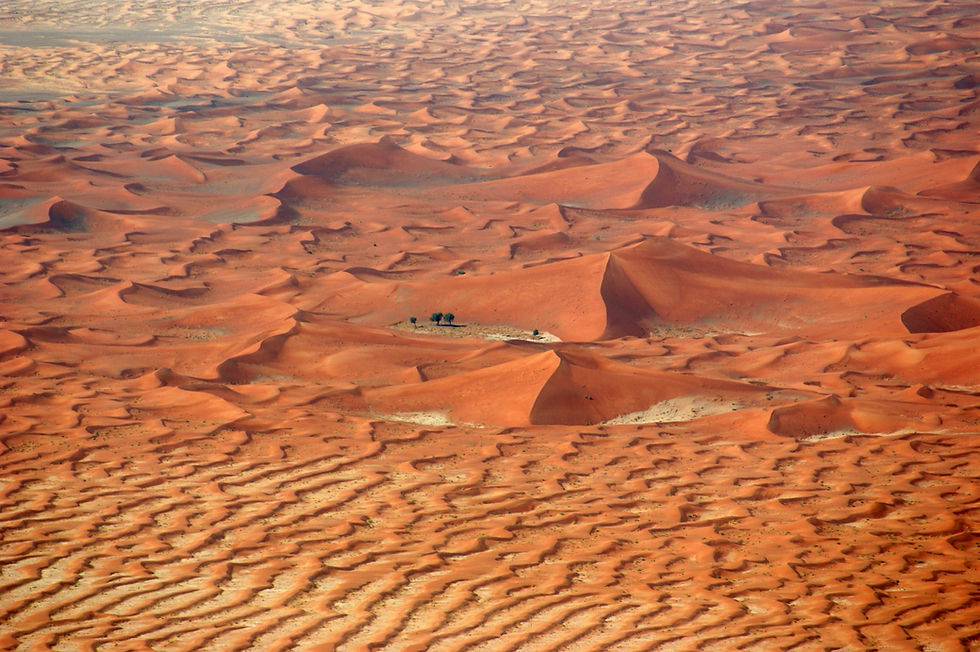Moon-Faced Beloved: Ramadan During Lockdown
- EPOCH

- Mar 1, 2021
- 7 min read
Updated: May 27, 2022
Leah Mellor | Lancaster University

Allah’s Apostle said, “When Ramadan begins, the gates of Paradise are opened.”

As one of the Five Pillars of Islam, Ramadan is the month all Muslims look forward to. Muslim lives are shaped, transformed and wholly dedicated to this unique holy month of fasting. A time when families and friends come together to celebrate as a community: sharing food, prayer and worship. After Ramadan comes to an end, Muslims observe Eid al-Fitr, a celebration marked with colour, joy, food, decorations and gifts. The importance of Ramadan and Eid cannot be understated. They are paramount for the lives of Muslims. The history of Islam is interwoven with Ramadan, commemorating the day Prophet Muhammad received his first Revelation from the Angel Gabriel.
During Ramadan, Muslims practice a heightened degree of self-control, abstaining from prohibited acts from dawn until sunset such as sexual activity, eating food, and drinking liquids. Acts recommended during Ramadan are increased recitation and study of the Qur’an, and to break one’s fast by eating dry dates. One is also advised to temper themselves, and not express negative emotions, such as anger, hatred and violence. For many Muslims, Ramadan is spent at the mosque (masjid), performing prayers in the evening; and, as a community, sharing iftar (the meal to break one’s fast). It is a month of sheer endurance and discipline. The social, historical and spiritual significance of both Ramadan and Eid are cardinal. Ramadan is a period of enlightenment, solitude and forgiveness.
The lockdown of 2020 threatened to disturb the spiritual core of Ramadan, potentially upending this holy month. Religious interruptions have, of course, occurred in the past. For instance, the cholera outbreak causing the suspension of hajj (pilgrimage to Mecca) in 1837 and 1846, as well as the Ebola outbreak in 2014, which witnessed Friday prayer being cancelled in Syria. The effects of the Coronavirus pandemic, however, are unprecedented. Muslims had to adjust to limitations imposed by lockdown, while also enduring the disappointment of Eid being cancelled within hours of its commencement. The Coronavirus pandemic and the restrictions brought about to contain the disease has brought stress, anxiety and anger for many in Britain.
How have Muslims managed not only to commit to Ramadan, but readjusted to the rules imposed upon them? How exactly would Prophet Muhammad have responded to such regulations, and what can Muslims bring from his example to help them during these difficult and trying times?
Qualities of love, compassion and forgiveness, at the very least, were conveyed during Ramadan in the year 2020. From 23rd April to 23rd May, Ramadan, as well as the festival of Eid, was celebrated for the first time within the confines of home due to the Coronavirus pandemic. As a result, the fast was made considerably more challenging, as Muslims had to abstain from ritual, social and humanitarian acts which, when performed in Ramadan, have a great merit such as nightly congregations, and family and communal gatherings. Muslims instead had to fast and worship from home, expanding the meaning of Ramadan as a month of sincere, unselfish and patient devotion. This was embodied by the use of technology during Ramadan, helping Muslims and non-Muslims around the world to overcome loneliness, isolation and disconnection.
Many mosques and Imams harnessed the power of social media, taking their services online and offering a livestream of daily Qur’an recitation sessions and sermons. These sermons were used to stress the Islamic duty to preserve life, which in this case required adhering fully to the social distancing measures in place, but to also offer worshippers a sense of feeling connected with the world. #RamadanAtHome began, and Muslim organisations, such as The Naz Legacy Foundation and the Ahmadiyya Muslim Association, held their Virtual Iftars online over Zoom, BBC Radio, and other forms of technological communication, welcoming both Muslims and non-Muslims to celebrate the break of fast.
It was The Naz Legacy Foundation, amongst other charities and organisations in Britain, which responded to the restrictions positively, emulating Prophet Muhammad’s selfless character. Naz Legacy was founded by Naz Bokhari, who was the first British Muslim to run a UK secondary school, with one of his pupils having been Sadiq Khan. He inspired new generations of British born Muslims by demonstrating how someone from an immigrant background can fully integrate into society. Bokhari is considered one of the first to introduce platforms for interfaith organisations and discussions, and The Naz Legacy continues to stand for this form of communication, believing this is the way forward for a society to be cohesive and pluralistic. During Ramadan in 2020, the foundation invited faith leaders, and citizens of all races, faiths and genders in Britain to come together, and break one’s fast.
This was a pivotal event for Islam, and, arguably, Britain. Doors were opened, and regardless of background, people were welcomed warmly to join in with discussion and prayer. Many were educated on the significance of Ramadan, and no judgement was passed on those who knew little to nothing about it. Protestants, Jews, Atheists, Buddhists, Sikhs and so many alike attended. Various topics were explored, such as mental health; employment; dealing with grief; how one ought to commit to their religious values during such a perilous time; and, the importance of community. Over 75,000 joined these Virtual Iftars, a record-breaking number, as well as the UK’s major faith leaders from the Archbishop of Canterbury and Imam Mahmoud; political leaders, such as Keir Starmer, Sadiq Khan and Andy Burnham, spoke to their audience and answered questions posed to them. His Royal Highness The Prince of Wales opened the Virtual Iftar platform, addressing Muslims citizens and consoling with the difficulties and sadness arising during Ramadan because of the Coronavirus pandemic and lockdown.

One fast was broken by Imam Mohammed Mahmoud, who had shielded victims from terrorist attacks of 2017 in Finsbury Park. He spoke about how fasting is a private experience between God and the believer, whereas the breaking of fast is a public event, usually performed in mosques and at home. Afterwards, prayer (salat) is performed – a communal experience, as well as a private seclusion with God. With the challenges brought by the pandemic, Imam Mahmoud voiced his hopes that this lockdown would be a spiritual rejuvenation for not only Muslims, but everybody. His philosophy of Ramadan, and positive message resonated with many who have struggled with the demands of lockdown, helping to guide those out of despair. During the following iftar, a final note was made – that Ramadan, this year, is a fast from embracing our loved ones.
This year has been a crucial time for Britain, and how we reflect and perceive one another as not separate faiths and people, but as a community which has struggled significantly during a crisis. Muslims have had to endure many sacrifices not usually made during Ramadan, such as being unable to share households, meals and prayers. For the celebratory significance of Eid-ul Fitr to be ignored has understandably brought further frustrations and inevitable grief during what should be a time of joyous festivities.
In another example of interfaith solidarity, Christmas 2020 also showed how people of different faiths can come together in times of crisis. Days before Christmas, citizens in London were faced with Tier 4, suddenly unable to visit families and friends, despite being promised otherwise. As Muslims were not allowed Eid, non-Muslims endured loneliness and great struggle over Christmas, be it in London, or elsewhere in Britain.
Such challenging and unusual circumstances have brought hope and reconciliation between different faiths. One particular instance involves a Muslim, Mohammad Hussain, who tweeted about his first-ever experience celebrating Christmas. Due to the pandemic, he was not able to return home to his family, and, instead, spent the holidays with his non-Muslim housemates. His entertaining yet sincere observations of Christmas were not only enlightening to his Muslim audience, but non-Muslim audiences as well. He provided an external perception of Christmas, highlighting just how important (as well as exhausting) this particular holiday is for non-Muslims. What’s more, he chose to adopt a few traditions, such as Secret Santa, saying he will potentially do this for Eid in 2021 – in his words, “the name’s being workshopped”. As he would have done during Ramadan, Mohammad donated $50 for the families who have struggled over Christmas during this pandemic.
The responses Mohammad received were, on the whole, positive. Non-Muslims replied enthusiastically, celebrating his observations, while amusingly listing the ways in which their families celebrate Christmas. Through his observations, non-Muslims and Muslims came together to discuss their different experiences of Christmas and Eid, and this didn’t necessarily outline their differences, but similarities. Christmas, like Eid, is a crucial time for so many. As a country, we have turned to each other for support and comfort, regardless of faith, skin colour, heritage and gender. This pandemic has potentially shaped and transformed many preconceived notions we once held of one another, bringing us one step closer to a more tolerant, and understanding, society.
Nothing has hit the Islamic community globally like the Coronavirus pandemic. The circumstances Muslims faced were unusual, yet they have turned these challenging limitations into something positive. By following the message of Prophet Muhammad, Muslims have adjusted successfully, and in their actions, have brought others around the world to celebrate alongside them. The challenges in 2020 mark a vital moment in the history of Ramadan. It is impossible to ascertain whether Ramadan and Eid will be celebrated again under these circumstances, but the positive hope Muslims have shared throughout their celebrations have made a mark on their own vast Islamic history.
The tunnel, for the moment, feels long and never-ending, yet there is a light peering through, as we embrace our neighbour, whoever they may be. As the Qur’an encourages us all to live in one community, we must stay united as a society not in spite of our differences, but because of our mutual human condition.
"O men! Behold, We have created you all out of a male and a female, and have made you into nations and tribes, so that you might come to know one another. Verily, the noblest of you in the sight of God is the one who is most deeply conscious of him. (Q. 49:13)"
----------------------
Further Reading
Armstrong, Karen, Muhammad: A Biography Of The Prophet (London: Phoenix Press, 1991).
Armstrong, Karen, ‘Unity: The God Of Islam’, in A History Of God (London: Vintage, 1999), pp. 159-202.
Asad, Muhammad, The Message Of The Qur’ān (The Book Foundation, 2008).
Ramadan, Tariq, Islam: The Essentials (London: Pelican, 2017).
Leah Mellor is a PhD student in Islam at Lancaster University. Her main interests cover the Prophetic Tradition, Islamic feminism, interfaith dialogue and gender in religion.
Twitter: @ LeahMellor3
LinkedIn: www.linkedin.com/in/leahmellor1994


